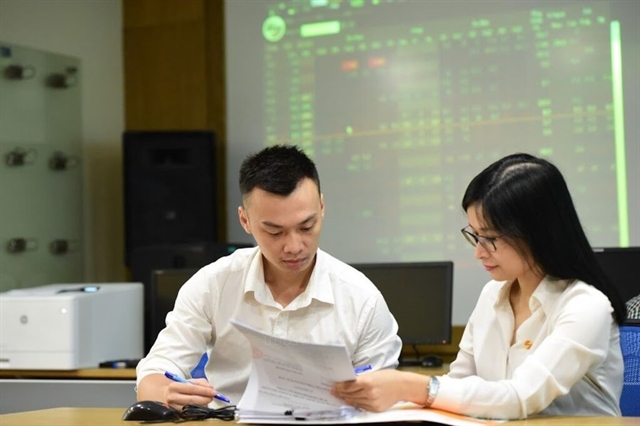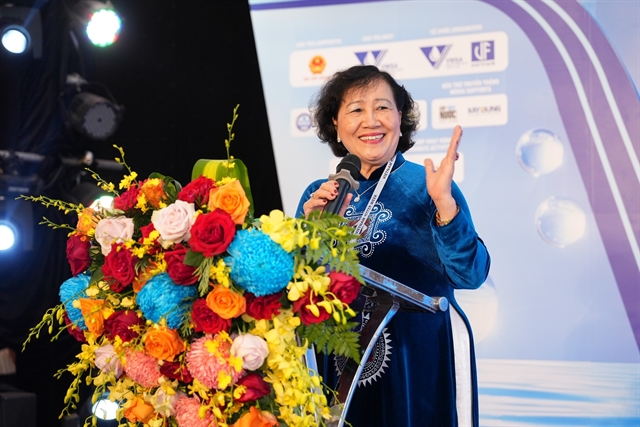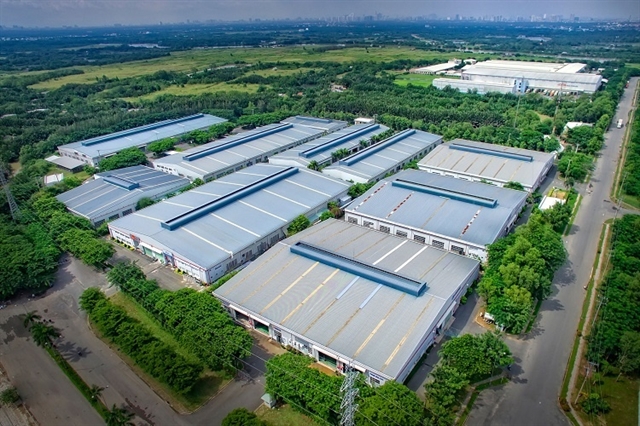 Economy
Economy


|
| Hạ Thanh Hằng, vice chairwoman of the Vietnam Water Supply and Sewerage Association, said the water sector aims to make gender equality an integral part of its sustainable development strategy. — Photo courtesy of BSA |
HCM CITY — Promoting gender equality in the workplace not only enables businesses to harness the full potential of women’s talents and perspectives but also strengthens their foundation for sustainable growth, experts say.
Việt Nam has made significant progress in advancing gender equality at work, with women’s labour force participation among the highest in Southeast Asia. However, gender gaps remain in many sectors, especially in technical and infrastructure fields, where women remain underrepresented in leadership roles.
In the water sector, for example, women accounts for about 33 per cent of the workforce but hold only 7 per cent of leadership roles, according to an Asian Development Bank report.
To address this imbalance, the Vietnam Water Supply and Sewerage Association (VWSA), in collaboration with the ADB, has introduced the GEARS (Gender Equality Assessment, Results, and Strategies) toolkit, which enables enterprises to assess gender gaps and design practical solutions to close them.
For the first time, the sector has conducted a comprehensive survey on gender equality, unveiled during Vietnam Water Week 2024, as part of efforts to shape the Gender Equality Strategy for 2025–2030.
The strategy sets a bold vision: all enterprises should have a gender strategy, and women should hold at least 50 per cent of leadership or board positions by 2030.
According to Hạ Thanh Hằng, vice chairwoman of VWSA: “We aim to make gender equality an integral part of the water sector’s sustainable development strategy, as it benefits not only women but also businesses and communities.”
Women are also playing a growing role in science, technology, and digital transformation.
Prof. Dr. Nguyễn Thị Thanh Mai, vice president of Việt Nam National University – HCM City, said women’s participation is crucial to ensuring that scientific achievements are applied equitably and effectively.
Assoc. Prof. Dr. Huỳnh Thành Đạt, deputy head of the Party Central Committee’s Commission for Information, Education, and Mass Mobilisation, added that women are also pioneers in the digital era.
Globally, the ESG (Environmental – Social – Governance) framework has become a common business standard. The “S” component includes indicators on diversity, inclusion, and women’s rights.
For Vietnamese enterprises, weak ESG performance, especially in gender equality, could limit access to finance and export markets. Conversely, treating gender equality as an ESG advantage can unlock partnerships and long-term growth.
Since early this year, the GEARS@VN programme has been implemented in Việt Nam with the support of the Australian Government through the Investing in Women initiative, in partnership with the Business Studies and Assistance Centre (BSA) and social enterprise ECUE.
The programme promotes women’s participation and empowerment in business and is part of regional network spanning Indonesia, the Philippines, and Myanmar.
GEARS@VN supports organisations in measuring and integrating comprehensive ESG practices in human resource management, helping them strengthen competitiveness in global supply chains.
After nine months, the programme has organised numerous workshops, training sessions, and knowledge-sharing activities to raise awareness of gender equality in the workplace among businesses.
Its experts are also advising leading enterprises across sectors, including VWSA (water), TTC AgriS (agriculture), Biti’s (consumer goods), WellSpring Saigon (education), Lạc Địa Cooperative (food and beverage), Pencil Group (communications), and Wecare247 (healthcare).
From 2025 to 2026, GEARS@VN will conduct research on gender equality in key export sectors such as seafood, textiles, footwear, wood, and furniture. It will also support export-oriented firms in improving gender equality indicators and integrating them into their sustainability reports.
These efforts are expected to enhance the global competitiveness of Vietnamese enterprises and increase their visibility in the regional impact investment landscape. — VNS




